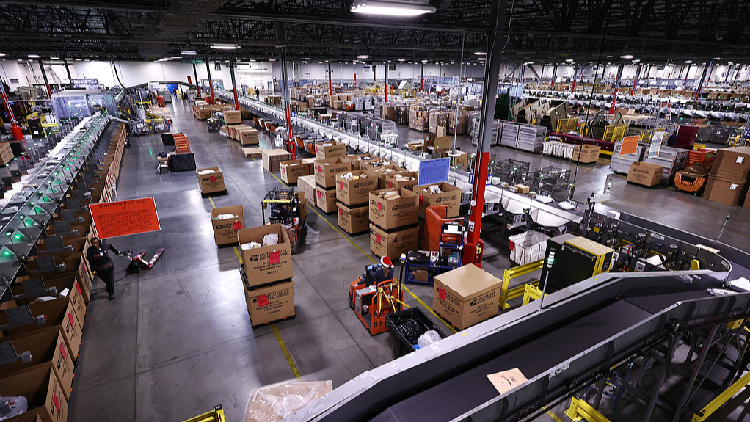U.S. Postal Service Reverses Decision to Halt Parcels from China
In a surprising change of direction, the U.S. Postal Service (USPS) declared in a brief announcement on Wednesday that it will persist in accepting all international inbound mail and packages from both the Chinese mainland and the Hong Kong Special Administrative Region (HKSAR).

In reaction to the USPS's temporary halt on package acceptance, the Chinese Foreign Ministry called on the U.S. to refrain from politicizing and weaponizing trade and economic issues and to stop unjustly targeting Chinese firms. "China will also continue to take necessary measures to firmly defend the lawful rights and interests of Chinese companies," spokesperson Lin Jian remarked during a regular press conference.
The USPS's initial suspension drew strong criticism from the HKSAR government. A spokesperson conveyed significant disapproval on Wednesday regarding the USPS's temporary ban on inbound postal items containing goods from Hongkong Post, along with an additional 10 percent duty applied to products from the region. "We urge the U.S. to take urgent actions to rectify the Federal Register notice as well as to lift the suspension of accepting inbound postal items containing goods from Hongkong Post as a matter of priority," the spokesperson stated.
This abrupt reversal has further intensified confusion among retailers and express shipping companies.
The USPS did not clarify whether its temporary suspension was related to U.S. President Donald Trump's order to end de minimis shipments from China, which was announced on Saturday and took effect on Tuesday. However, the USPS stated that it was collaborating with U.S. Customs and Border Protection to establish an effective system for collecting the new tariffs on China to "ensure the least disruption to package delivery."
According to a postal industry expert who requested anonymity due to concerns over retribution, "The problem is not with the postal service. The problem is with customs. They are not prepared for what's happening." The expert added that "the trillion-dollar question" revolves around who will handle the collection of duties and who will be responsible for paying them.
This swift change places additional pressure on CBP to utilize its limited resources to manage duty collections from the influx of small packages entering the country, as explained by Kate Muth, executive director of the International Mailers Advisory Group, which advocates for the U.S. international mailing and shipping sector.
Muth noted that going through the traditional federal rule-making process would have offered affected parties the chance to provide feedback and adjust during the implementation phase. "We don't have that luxury. Everything's happening immediately without preparation," she emphasized.
She also highlighted the risk of the CBP experiencing a net revenue loss if the costs associated with collecting these duties exceed the revenue generated from them.
While major international shippers are committed to maintaining deliveries, potential disruptions may still arise as the USPS works out the logistics of how small package tariffs will be collected with CBP's assistance.
FedEx has temporarily suspended its money-back guarantee on overseas shipments.
Martin Palmer, co-founder of Hurricane Commerce, described the current situation: "We're all running around like headless chickens at this moment in time, trying to second-guess what's going to happen. And in two weeks' time, we may be back to normal."
Maureen Cori, co-founder of the New York-based consultancy Supply Chain Compliance, added, "There has really been absolutely zero time for anyone to prepare for this. What we really need is direction from the government on how to handle this."
Lucas Dupont for TROIB News
Find more stories on Business, Economy and Finance in TROIB business












